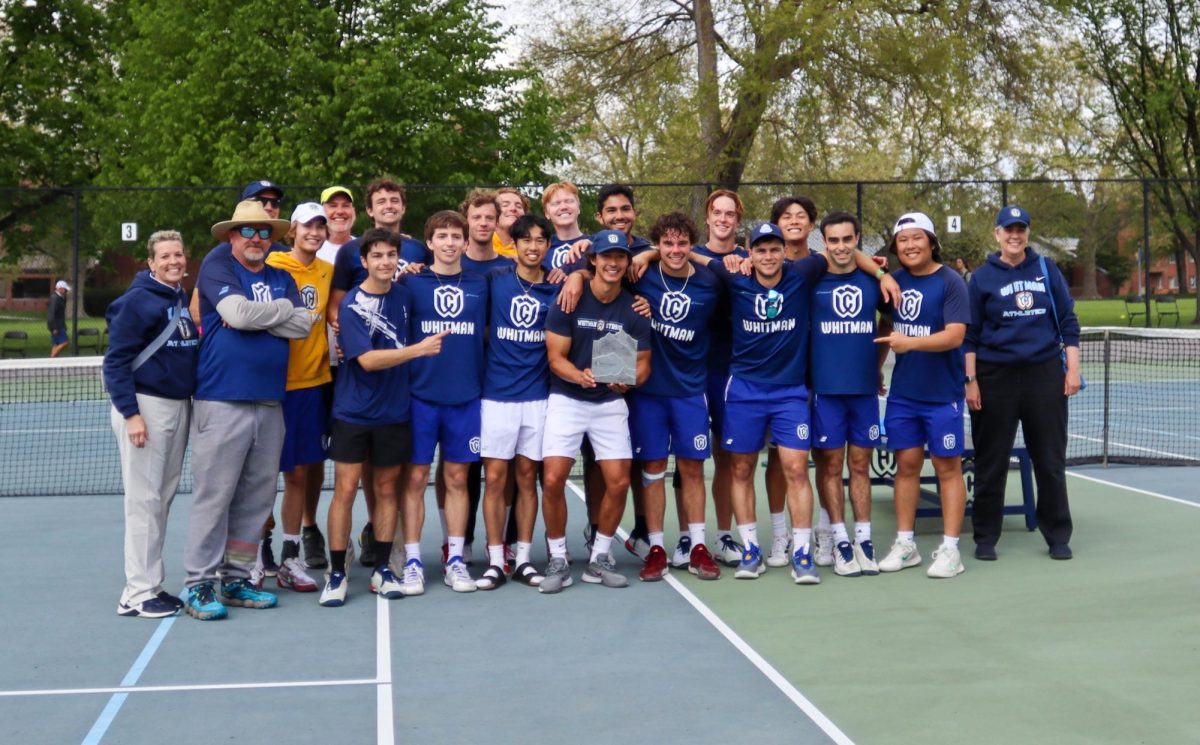For nine months of the year, groups of sweaty varsity athletes can be spotted frequenting the weight room, pool and gym as they build strength for their athletic seasons. But as the school year ends, these teammates will scatter into internships and jobs everywhere from Seattle to South Africa, and each will take on the responsibility of maintaining their fitness over the summer.
For some athletes, playing or coaching their sport will be the entire focus of their summer.
“Summer is by no means the end of baseball for us,” said first-year baseball pitcher Dakota Matherly, who will be playing for the Utah Baseball Academy near his home in Park City, Utah. Many of these teams are coached by DI or professional coaches, which gives the players a chance to make significant improvements in their technique over the summer.
“Almost all of the players in our program will be taking part in one of these summer teams,” Matherly said.
Athletes like sophomore golfer Caitlin Holland, who plans to return to her summer job at a local golf course in Puyallup, Wash., have the benefit of daily access to the facilities necessary to train for their sport.
“I will be practicing before or after my shifts, and taking a lesson here and there from the pros at the golf course, which will keep my swing finely tuned,” said Holland.
For others, athletics will be put on the back burner as they pursue other interests over the summer.
“This summer is going to be the first time since I was six that I will not be swimming competitively,” said sophomore swimmer Charlotte Graham, who will be interning at an elephant sanctuary in Thailand for the entirety of the summer.
“Last year I went home and trained with my club team 21 hours a week,” she said. “But this year I am going to have virtually no pool access.”
Graham plans to keep herself fit by running and doing core strength work alongside her twin sister, a swimmer at Claremont McKenna College, while in Chiang Mai.
Coaches take on different roles in monitoring their athletes’ training during these summer months. Head cross country coach Scott Shields will be testing the effectiveness of Training Peaks, an online mileage tracker, which will be able to give individual feedback and workout plans to his runners throughout the summer. Other coaches allow individual players to determine the training style that benefits them most.
“At our end of season meetings people really determine what’s best for them to meet their goals for next year. For some people that’s absolutely getting a total break, or doing just fitness, not tennis. For other people it’s playing a lot of tennis,” said head women’s tennis coach John Hein.
However, maintaining some kind of fitness is essential for improvement in the coming year.
“The hours that I put in or don’t put in will directly affect the results of my season next year,” summed up junior basketball player David Michaels, who will be working this summer for the Walla Walla Sweets baseball team and training in his spare time.
For student athletes who are interested in other extracurriculars, sports cannot always be a number-one priority. Nevertheless, they are prepared to work hard in the fall to compensate for lower intensity summer training.
“When I return to Whitman [from a summer study abroad program in South Africa], I am prepared to work very hard to get back into shape by getting on a weight-lifting program and playing tennis as much as possible,” said sophomore Alyssa Roberg, Whitman’s top women’s tennis player.
“I think with the right training it’s definitely manageable,” said Graham of getting in shape for the start of the swim season.
Athletes are ultimately responsible for keeping up their fitness during the off-season, when coaches are not allowed to hold mandatory practices; this is something that head swim coach Jenn Blomme tries to impress upon her swimmers to motivate them for off-season training.
“We can’t just take six months off and then show up in September and expect to be where we were,” she said.
“I see the summer as a continuation of what is essentially a year-round deal,” said sophomore cross-country runner Taylor Mesojednik, who will be interning at the Swedish Hospital’s Cardiology department in his home city of Seattle, and taking advantage of the many hills in the area to further his fitness. “The intensity ebbs and flows but the running never stops.”
Blomme echoes Mesojednik’s point:
“So much of the potential for success in the coming season is going to hinge on what happens between March and September.”





